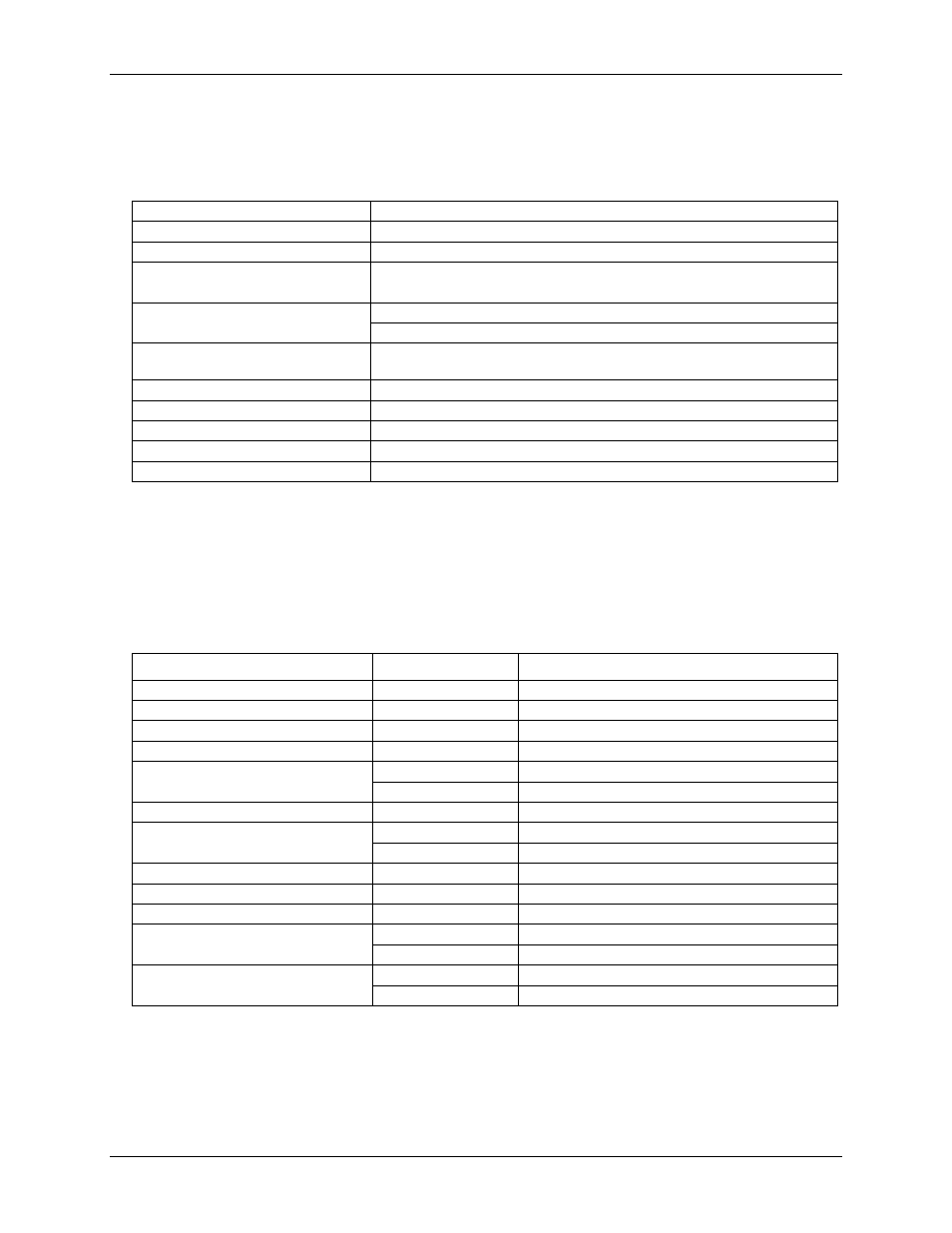Digital input/output, Synchronous dac load – Measurement Computing USB-3110 User Manual
Page 20

USB-3110 User's Guide
Specifications
20
Digital input/output
Table 6. Digital I/O specifications
Digital logic type
CMOS
Number of I/O
8
Configuration
Independently configured for input or output
Pull-up/pull-down configuration
(Note 5)
User configurable
All pins floating (default)
Digital I/O input loading
TTL (default)
47K ohms (pull-up/pull down configurations)
Digital I/O transfer rate (system paced)
System dependent, 33 to 1000 port reads/writes or single bit reads/writes per
second.
Input high voltage
2.0 V min, 5.5 V absolute max
Input low voltage
0.8 V max, –0.5 V absolute min
Output high voltage (IOH = –2.5 mA)
3.8 V min
Output low voltage (IOL = 2.5 mA)
0.7 V max
Power on and reset state
Input
Note 5:
Pull up and pull down configuration area available using the DIO CTL terminal block pin 54.
The pull down configuration requires the DIO CTL pin (pin 54) to be connected to a DGND pin
(pin 50, 53 or 55). For a pull up configuration, the DIO CTL pin should be connected to the +5V
terminal pin (pin 56).
Synchronous DAC Load
Table 7. SYNCLD I/O specifications
Parameter
Conditions
Specification
Pin name
SYNCLD (terminal block pin 49)
Power on and reset state
Input
Pin type
Bidirectional
Termination
Internal 100K ohms pull-down
Software selectable direction
Output
Outputs internal D/A LOAD signal.
Input
Receives D/A LOAD signal from external source.
Input clock rate
100 Hz max
Clock pulse width
Input
1 µs min
Output
5 µs min
Input leakage current
±1.0 µA typ.
Input high voltage
4.0 V min, 5.5 V absolute max
Input low voltage
1.0 V max, –0.5 V absolute min
Output high voltage (Note 6)
IOH = –2.5 mA
3.3 V min
No load
3.8 V min
Output low voltage (Note 6)
IOL = 2.5 mA
1.1 V max
No load
0.6 V max
Note 6:
SYNCLD is a Schmitt trigger input and is over-current protected with a 200 Ohm series resistor.
Note 7:
When SYNCLD is in input mode, the analog outputs may either be updated immediately or when
a positive edge is seen on the SYNCLD pin (this is under software control.) However, the pin
must be at a low logic level in order for the DAC outputs to be updated immediately. If an
external source is pulling the pin high, no update will occur.
